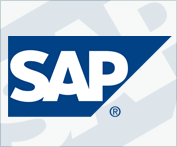 |
Nnamdi Ezeigbo (MD Slot) with Director, MTN Foundation, Dennis Okoro
|
Nigerian youths have been charged to be pragmatic in
their approach toward addressing issues they might be dealing with in their
quest to create and sustain a winning idea for empowerment and development.
In dealing with these issues, the youths have been
counseled to “think like there is no box” and show greater ingenuity to counter
the challenges.
This counsel was given by the Senior Special Adviser
to the Abia State government on Public Communication, Mr. Sam Hart and the
Managing Director of SLOT, Nnamdi Ezegbo, at the launch of the MTN Foundation
Scholars Alumni and Conference held in Owerri, Imo state.
The conference, billed as an annual event, will
bring together the graduate beneficiaries of the MTN Foundation Scholarship
schemes: Scholarship for the Science and Technology students (STSS) and
Scholarship Scheme for the Blind Students (SSBS).
Rather than sitting back and sulking about the
current economic challenges, Hart, who is also the promoter of the ‘Made in
Aba’ initiative said the youths, “should not think outside the box but they
should think like there is no box. Challenges will come, failure will come but
they are necessities to succeed. You need to be resilient to sustain a winning
idea and you must believe in yourself.”
On his part, the Managing Director of SLOT, Nnamdi
Ezegbo recounting how he started SLOT technologies, advised the participants to
always be prepared for challenges because the road to success will never be
smooth. Only determination will make them succeed.
Ezegbo went philosophical when he said, “my strategy
for operating SLOT is to create solutions. The environment will never be
perfect. There is no perfect time for you to strike at success. Every time is
the best but you need to understand the times.”
Ezegbo crystallizing the SLOT acronym said, “SLOT
means Solution, Leadership, Opportunity and Technology. These are the four
principles that drive our existence.”
“The entrance of Tecno into Nigeria was a solution
from SLOT to get Nigerians to have a single phone that has multiple SIM. Tecno
was created to meet a need and it has become the backbone of my riding to
success.”
On leadership, “it is about understanding yourself.
You need to create an environment to continue to learn, while at the same time
you must identify the unique opportunities you hope to solve with technology,”
said Ezegbo.
Admonishing the beneficiaries, Director, MTN
Foundation, Mr. Dennis Okoro, said they should see the scholarship as a rare
opportunity that must be well utilized. For the alumni Okoro said, “now that
you have all gained and have been empowered, it is essential that you show
yourselves as worthy ambassadors of the programme. Feel free to exhibit your
creativity positively and contribute your quota to the development of the
country.”
The conference will also hold in Abuja and Lagos
with Tonye Cole, Bolanle Austin-Peters and Chika Ofili confirmed as speakers
for the locations.
The aim of the MTNF Scholars Alumni Conference is to
give beneficiaries of the scholarship scheme opportunities to meet with
successful Nigerian entrepreneurs that will share their success stories of
impact and value to inspire them as they launch themselves to the world as
agents of value creation and change. The theme of the conference is, “Creating
a Winning Idea.”
Via: Guardian
















